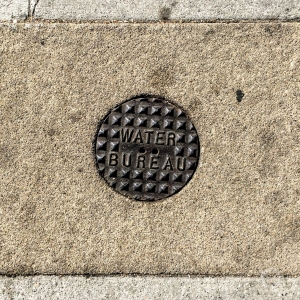Federal Water Tap, April 13: House Democrats Advocate for Water Funding in Next Coronavirus Relief Bill
The Rundown
House Democrats offer competing water funding visions during the coronavirus pandemic. Congress gives the EPA an extra $20 million for the Great Lakes Restoration Initiative. The Army Corps begins two environmental analyses: of a proposed reservoir for Dow Chemical’s Texas facility and of deepening the Corpus Christi shipping channel to facilitate oil exports. USGS researchers study thresholds for determining ecological drought. The EPA maintains current performance criteria for the WaterSense labeling program. And lastly, the CDC publishes a plumbing safety checklist for building owners to follow to ensure safe water in idled buildings.
“A robust water infrastructure funding program would not only help protect the public’s health, but it would also provide long-term economic stimulus to our country.” Excerpt from a letter signed by 80 House Democrats who advocate that the next coronavirus relief bill should include funding for water systems.
In context: Covid-19 Crisis Could Decimate Water Utility Revenue, Worsen Affordability Problems
By the Numbers
$20 million: Additional funding in fiscal year 2020 for the federal government’s premiere environmental cleanup program for the Great Lakes. The base level of funding for the Great Lakes Restoration Initiative was $300 million. With the extra money, the U.S. Environmental Protection Agency will spend $7.5 million on restoring the region’s most contaminated sites, and $5 million for researching systems to treat ballast water for cargo ships that ply the Great Lakes. The remainder of the funds will go towards trash cleanup and reducing nutrient pollution. (EPA)
News Briefs
Water Aid During Covid-19
Legislation introduced in the House would offer states and tribes $1.5 billion to aid low-income households with their water bills.
There is a catch. To receive aid, states and tribes must agree not to turn off water to homes during the coronavirus public health emergency. They must also agree to reconnect water service to homes in which water was previously turned off.
Reconnecting water to these homes is a move that Michigan Gov. Gretchen Whitmer ordered in March for utilities in her state.
Two Michigan Democrats — Reps. Debbie Dingell and Rashida Tlaib — spearheaded the bill, which has 63 co-sponsors.
The proposal is a near replica of a provision that House Democrats added to their coronavirus relief package in March. That provision was not part of the final $2.2 trillion bill that President Trump signed on March 27. What is new in this bill is the stipulation to reconnect water service.
The bill does not cancel existing debt that households may have accrued because of late payments, and it does not prevent utilities from charging customers for water service.
To distribute money to households, the bill would use existing procedures for LIHEAP, a federal program that assists poor households with heating bills. Critics say that this is a cumbersome process that has administrative demands that could be a burden for small utilities.
House Democrats’ Letter
Eighty House Democrats signed a letter sent to leaders in Congress asking that the next coronavirus response bill include water funding.
The letter makes three direct requests:
- At least $12.5 billion in direct assistance for water and wastewater utilities to provide aid to customers and offset revenue declines from those who cannot pay their bills. The figure comes from the National Association of Clean Water Agencies, which did a back-of-the-envelope calculation estimating a 20 percent decline in revenue. Instead of subsidizing households, as in the Dingell-Tlaib bill, this provision would be channeled through utilities, which could offer discounts and bill relief.
- Requiring that all utilities that receive federal funds not disconnect water service for households that are late paying their bills during the pandemic emergency, and that utilities reconnect water service to homes that were previously disconnected.
- Federal funding for existing water infrastructure programs through the U.S. Environmental Protection Agency and the U.S. Department of Agriculture. An amount was not specified.
No WaterSense Changes
After a review mandated by Congress, the EPA announced that it will not change the performance criteria for products with a WaterSense label.
Established in 2006, the WaterSense program identifies water-efficient and water-conserving toilets, showerheads, faucets, and sprinklers.
In public comments, plumbing manufacturers were mostly content with the current criteria, while utilities, advocacy groups, and local governments were interested in greater efficiency standards — but not if they compromised the performance of plumbing systems. Many building plumbing systems were designed for higher water flows. When less water is used, there is more stagnant water, which can fuel the growth of unwanted pathogens such as Legionella.
Studies and Reports
Reopening a Building? Check the Water System
The Centers for Disease Control and Prevention published a plumbing safety checklist for building owners who plan to reopen hotels, offices, and other structures that have been idled during the coronavirus pandemic.
Water that sits in pipes for long periods of time is susceptible to bacteria growth as chlorine levels degrade. Warm, stagnant water is a breeding ground for Legionella, the bacteria responsible for a respiratory illness that resembles pneumonia.
In context: Legionnaires’ Disease Cases Soar Again, Set New Record
Drought, Wildfire, and Ecosystem Renewal
U.S. Geological Survey researchers contributed to a study that asked a straightforward but complex question: when does a moisture deficit become detrimental to ecosystems.
The study took on this threshold question by looking at the restoration of big sagebrush, a shrub species, in the Great Basin following wildfire. The researchers found that a drought immediately following a fire can suppress vegetation growth for many years, just as a traumatic event in childhood can have long-term cognitive and behavioral consequences.
The drought need not be long to cause damage. The researchers assessed conditions following re-seeding in March, a key month for sagebrush growth. The more warm and wet days in that month, the more likely that vegetation would take root and hold on. Even a short-term drought can reverberate across decades for these ecosystems.
“Seemingly small-scale and short-term changes in water availability and temperature can contribute to major ecosystem shifts, as many of these sites remained shrubless two decades later,” they concluded.
On the Radar
EIS for Dow Chemical Reservoir
The Army Corps of Engineers will prepare an environmental impact statement for an off-stream reservoir proposed by Dow Chemical for its plant near Freeport, Texas.
The 50,000 acre-foot reservoir would allow Dow to store water from the Brazos River for use during drought.
The project includes actions to restore the floodplain of Oyster Creek, a nearby waterway.
EIS for Corpus Christi Shipping Channel Dredging
The Army Corps of Engineers will also begin its environmental analysis of deepening the Corpus Christi shipping channel from 56 feet to 81 feet.
A deeper channel will accommodate tankers for exporting crude oil from the Permian basin.
The 46 million cubic yards of sand and clay generated by dredging could be used for beach and dune restoration.
The Corps expects a draft analysis to be completed by spring of 2021.
Federal Water Tap is a weekly digest spotting trends in U.S. government water policy. To get more water news, follow Circle of Blue on Twitter and sign up for our newsletter.
Brett writes about agriculture, energy, infrastructure, and the politics and economics of water in the United States. He also writes the Federal Water Tap, Circle of Blue’s weekly digest of U.S. government water news. He is the winner of two Society of Environmental Journalists reporting awards, one of the top honors in American environmental journalism: first place for explanatory reporting for a series on septic system pollution in the United States(2016) and third place for beat reporting in a small market (2014). He received the Sierra Club’s Distinguished Service Award in 2018. Brett lives in Seattle, where he hikes the mountains and bakes pies. Contact Brett Walton






Leave a Reply
Want to join the discussion?Feel free to contribute!